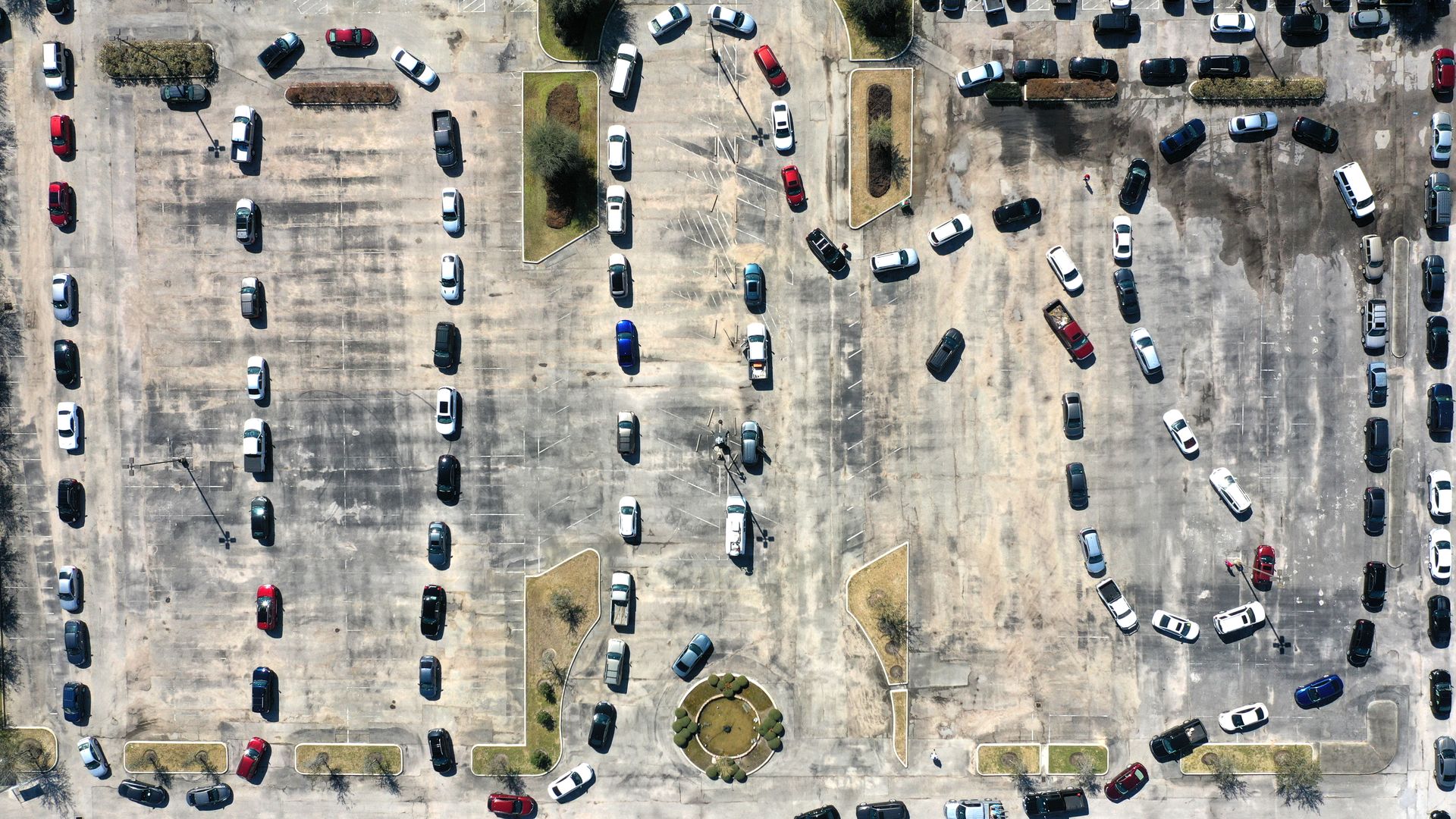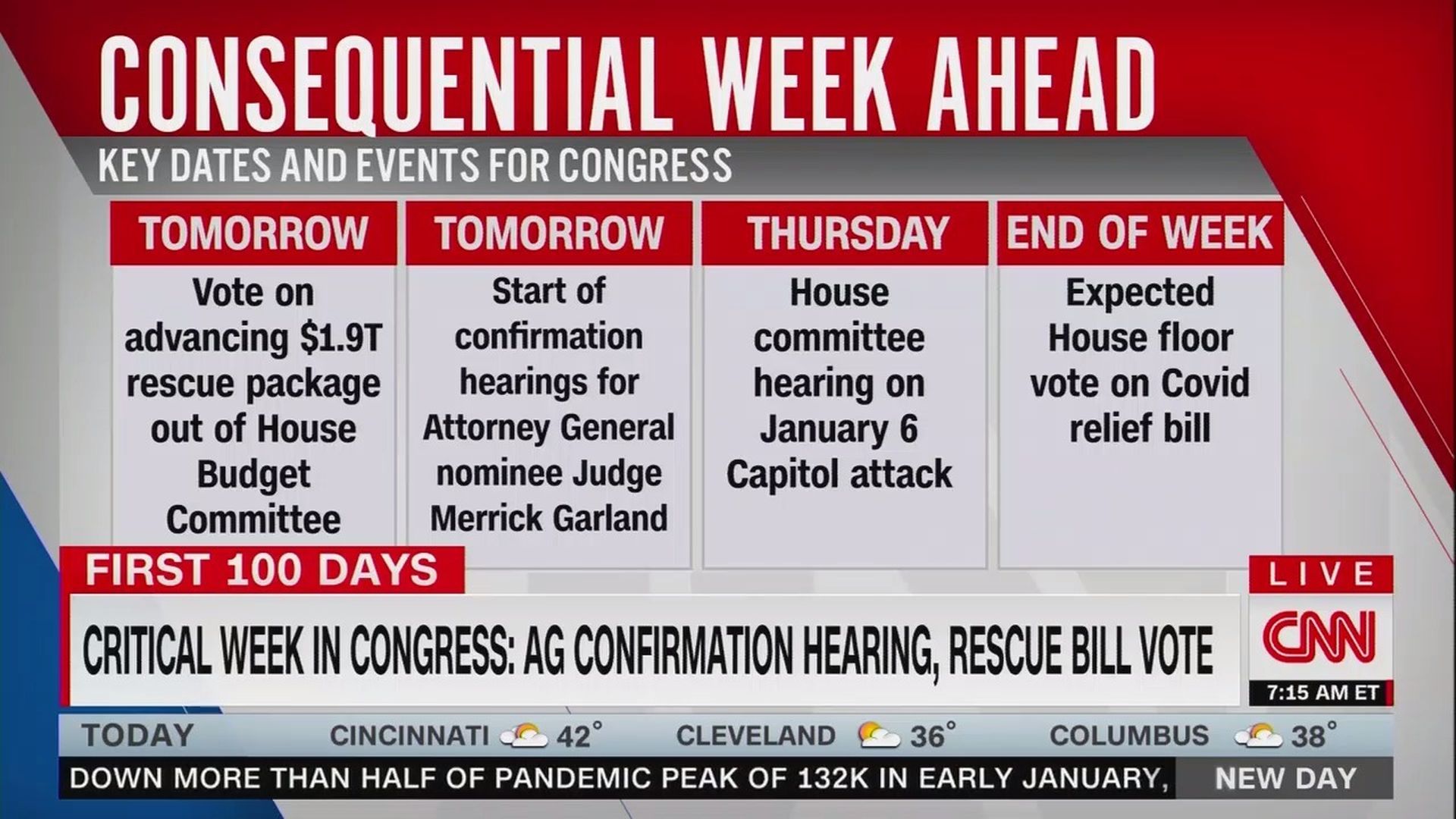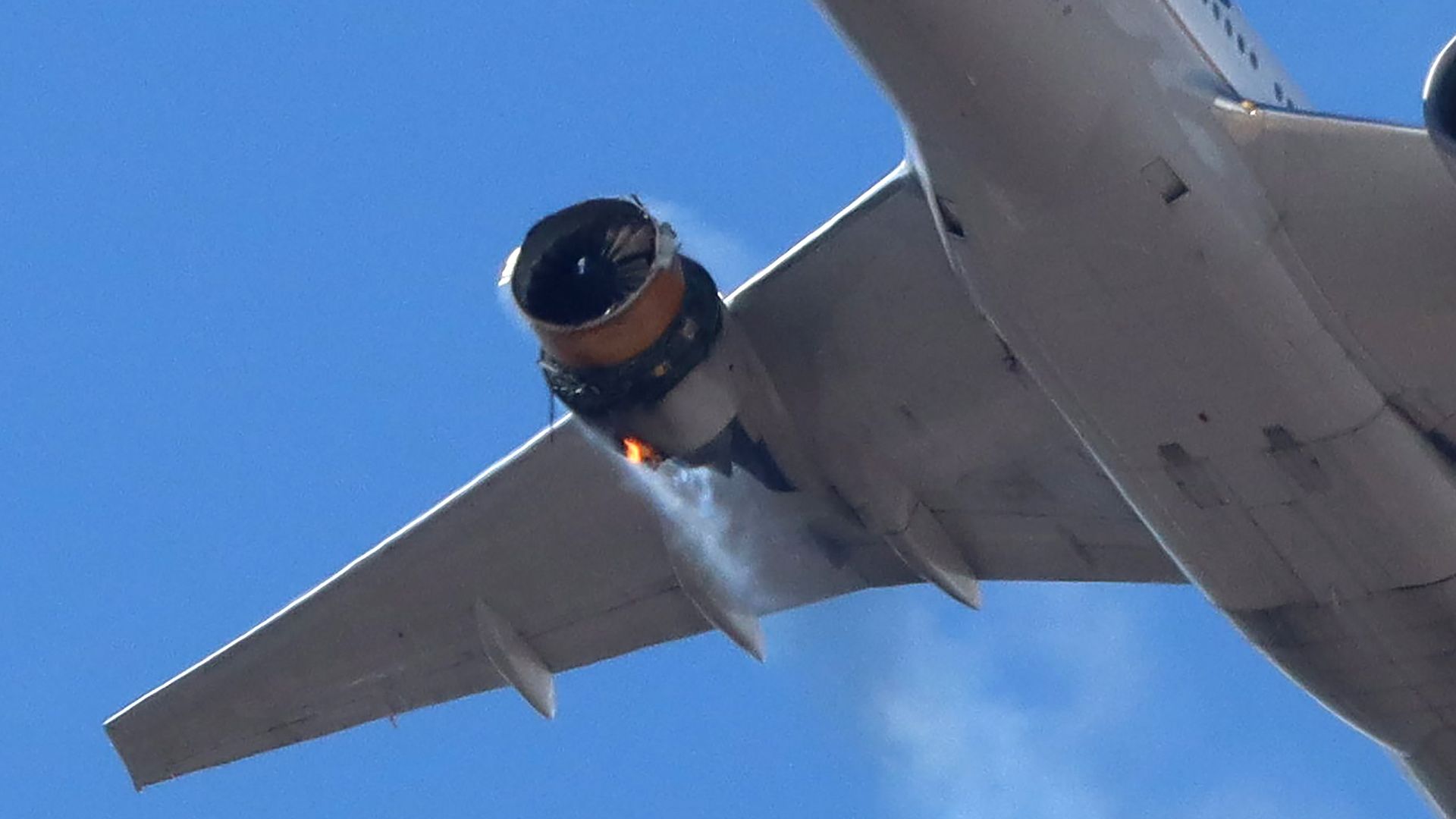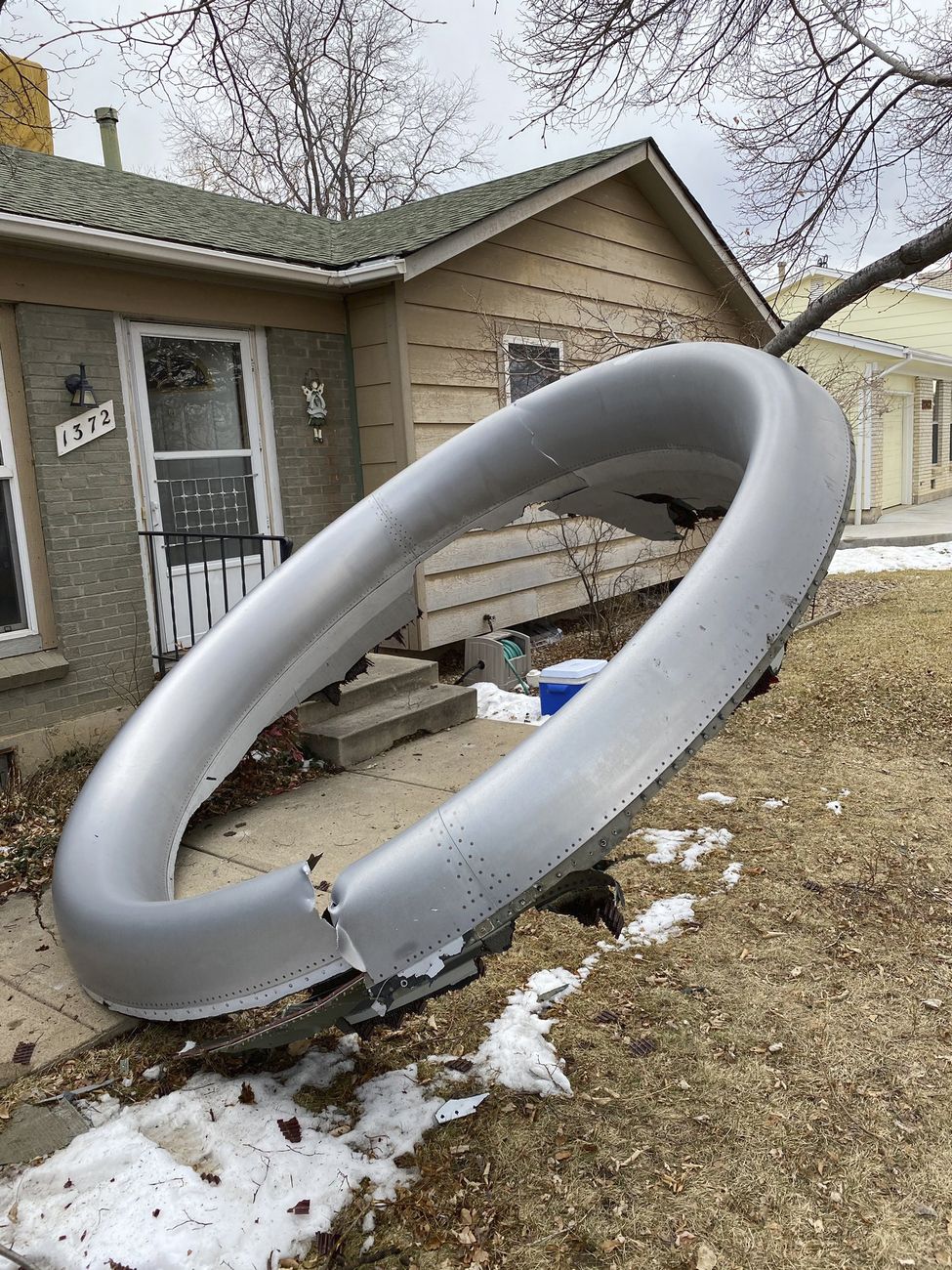| | | | | | | Presented By Walmart | | | | Axios AM | | By Mike Allen ·Feb 21, 2021 | | 🎥 Good Sunday morning. Tonight on "Axios on HBO" (6 p.m. ET/PT on all HBO platforms): - Dan Primack presses Randi Weingarten on reopening schools (See a clip) ... Ina Fried visits Fitbit CEO James Park ... Roxane Gay, Cornel West and Darren Walker tell us what's missing from Black history education ... NIH director Francis Collins talks masks with Nicholas Johnston (See a clip).
Today's Smart Brevity™ count: 967 words ... < 4 minutes. | | | | | | 1 big thing: America's vaccine rollout is one of world's best |  America's vaccine rollout is actually going quite well compared with other wealthy countries, Axios World editor Dave Lawler writes. - Yes, America's vaccine rollout has been imperfect, unequal and at times deeply frustrating. But look around the world: The U.S. has carried out more vaccinations than any other country, and given a first dose to a higher percentage of its population (12%) than all but five countries — Israel, the Seychelles, the UAE, the U.K. and Bahrain.
The backstory: The U.S. has major advantages. Not only does America have the money to reserve more doses than it can use, it also makes them. - The U.S. also made massive bulk purchases early — through the Trump administration's Operation Warp Speed.
- It also helps that the two most effective vaccines on the market were developed entirely (Moderna) or partially (Pfizer/BioNTech) in the U.S.
 Data: Duke Global Health Innovation Center. Chart: Michelle McGhee/Axios The big picture: Despite crumbling infrastructure and chaotic politics, the U.S. remains a scientific, technological and manufacturing powerhouse. That has played to its advantage, as has the sense of urgency with which the U.S. approached the vaccination challenge. Between the lines: The U.S. has secured world-leading vaccine supplies, but been less successful at translating them into actual vaccinations. - The most impressive rollouts have tended to come in countries with modern, centralized public health care infrastructure, making it easier to identify who's eligible for vaccinations and where to administer them. America's approach has appeared clunky by comparison.
Share this story. |     | | | | | | 2. Texas blackouts point to coming calamities |  | | | Drone's-eye view of cars lining up for a water distribution event at the Fountain Life Center in Houston yesterday. Photo: Justin Sullivan/Getty Images | | | | Last week's continent-wide severe storms foreshadow "coast-to-coast crises waiting to happen," as extreme weather poses rising risks to aging infrastructure, the N.Y. Times reports (subscription): - "As climate change brings more frequent and intense storms, floods, heat waves, wildfires and other extreme events, it is placing growing stress on ... roads and railways, drinking-water systems, power plants, electrical grids, industrial waste sites and even homes."
Why it matters: "Much of this infrastructure was built decades ago, under the expectation that the environment around it would remain stable," The Times reports. |     | | | | | | 3. Midwest economies escape COVID cliff |  | | | Snow-covered skyline of downtown Columbus on Dec. 16. Photo: Adam Cairns/Columbus Dispatch via Reuters | | | | Columbus, Indianapolis, Minneapolis and Cincinnati had some of America's lowest unemployment rates at the end of last year, putting the heartland "well ahead of tech and financial powerhouses such as San Francisco and Boston," The Wall Street Journal reports (subscription). - Why it matters: "Economists said Columbus and other Midwest cities .... benefited from a diverse economy that includes a larger-than-average concentration of white-collar workers who could shift to remote work during the pandemic."
The article focuses on Columbus, "home to Ohio State University, a source of young talent and stability during economic downturns ... The city is also home to the state Capitol and is a major hub for JPMorgan Chase & Co., the largest private employer, with 18,000 workers." |     | | | | | | A message from Walmart | | Walmart prepares 5,000+ pharmacies to administer the COVID vaccine | | |  | | | | The CDC selected Walmart and Sam's Club to help administer COVID-19 vaccines in communities across the United States. Why it's important: With 5,000+ pharmacy locations, the company can administer the vaccine in hard-to-reach parts of the country. | | | | | | 4. What we're watching: Big week for Biden agenda |  | | | Graphic: CNN | | |     | | | | | | 5. "I thought we were done" |  | | | Photo: Hayden Smith/@speedbird5280 via Reuters | | | | "Mayday, mayday ... Denver departure, United 328 ... Mayday. Aircraft just experienced engine failure; need to turn immediately." A Boeing 777-200, headed from Denver to Honolulu with 231 passengers and 10 crew aboard, suffered a catastrophic right-engine failure and flames erupted under the wing as the plane began to lose altitude. - Parts fell and loud booms were heard in north suburban Denver, The Denver Post reports: What appeared to be shards of the engine's outer shell dropped on a park where soccer teams were practicing.
Photo: Hayden Smith/@speedbird5280 via Reuters Above, UA328 returns to DIA with starboard engine on fire. - David Delucia told AP he stuffed his wallet in his pocket so he could be easily identified if the plane went down: "I thought we were done. I thought we were going down ... The pilot did an amazing job."
Photo: Broomfield Police Department via AP Debris from the plane rained on a front yard in Broomfield, Colo. |     | | | | | | 6. America's wall of grief began with one dot | | Today's N.Y. Times front page ... "The Toll: America Approaches Half a Million Covid Deaths" ... Each of these 497,380 dots represents one death: Graphic: Lazaro Gamio, Lauren Leatherby, Bill Marsh and Andrew Sondern/The New York Times "From afar, the graphic on the front page of Sunday's New York Times looks like a blur of gray, a cloudy gradient that slowly descends into a block of solid ink," Nancy Coleman writes for Times Insider. - "Up close, it shows something much darker: close to 500,000 individual dots, each representing a single life lost in the United States to the coronavirus, signifying a staggering milestone that the nation is reaching in just under 12 months."
- "Lazaro Gamio and Lauren Leatherby, both graphics editors at The Times, plotted out the points so they stretched chronologically down a long scroll, from the first reported U.S. death nearly a year ago to the current toll of often thousands of casualties per day."
Laz Gamio, an Axios alumnus, told The Times: "I think part of this technique ... is that it overwhelms you — because it should." |     | | | | | | 7. Endangered jazz history faces new risk |  | | | Billie Holiday performs at the Club Downbeat in Manhattan in February 1947. Photo: William Gottlieb/Redferns via Getty Images | | | | Musicians, artists and fans are racing to save the nation's jazz history as historic clubs face closure and master tapes of crucial recordings by African American artists collect dust, Axios race and justice reporter Russell Contreras writes. - Why it matters: The pandemic has wrecked an already vulnerable jazz industry by forcing live music shows to halt. Musicians and club owners have turned to online fundraisers for survival, and point to the music's connection to civil rights as a need to keep its legacy alive.
- "Jazz is African American genius," said playwright Suzan-Lori Parks, who wrote the screenplay for the upcoming Hula film, "The United States vs. Billie Holiday." (Watch the trailer.)
Owners of the historic Washington, D.C., jazz club Blues Alley, a venue that once hosted the likes of Dizzy Gillespie and Stan Getz, announced this month that the club is up for sale, and likely won't reopen at its original Georgetown site. What's next: Hip hop artists, poets and filmmakers are working to keep jazz alive through their own art. |     | | | | | | 8. Parting shot |  | | | Photo: Shannon VanRaes/Reuters | | | | This snow maze in St. Adolphe, Manitoba, Canada, is even bigger than a similar maze — built on the same site in 2019 — that was proclaimed the world's largest by Guinness World Records. |     | | | | | | A message from Walmart | | Walmart is gearing up to play a pivotal role in vaccine distribution | | |  | | | | Walmart is working with the CDC, HHS and local officials to tackle the COVID-19 vaccine rollout at scale. Key numbers: - 90% of the US population lives within 10 miles of a Walmart.
- Over 5,000 pharmacy locations are preparing to administer the vaccine.
| | | | 📬 Thanks for sharing your Sunday with us. Please invite your friends to sign up for Axios AM/PM. | |














No comments:
Post a Comment